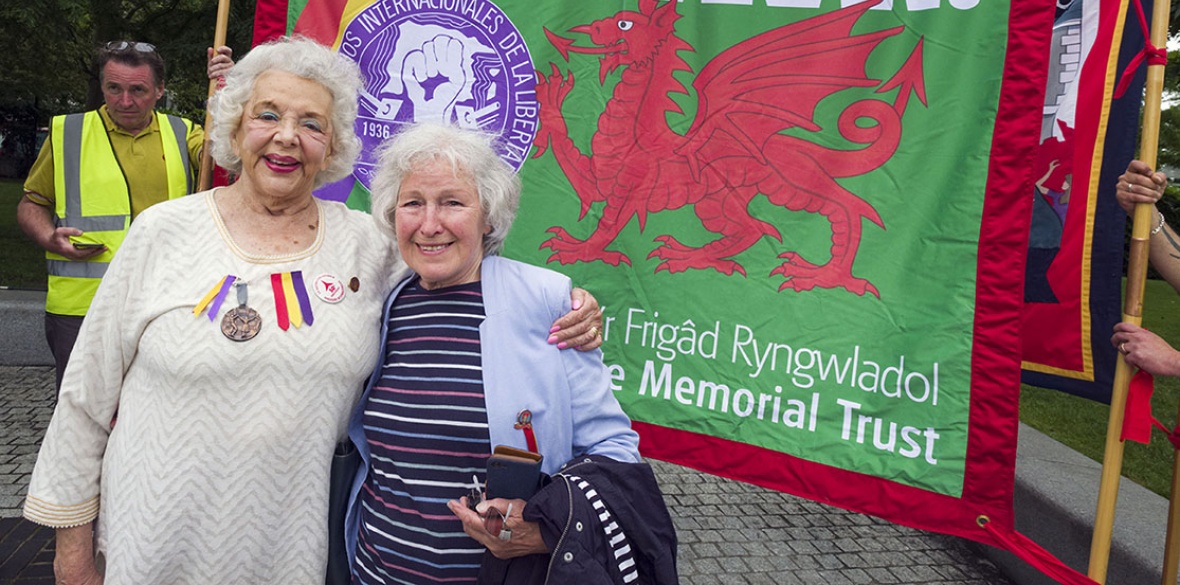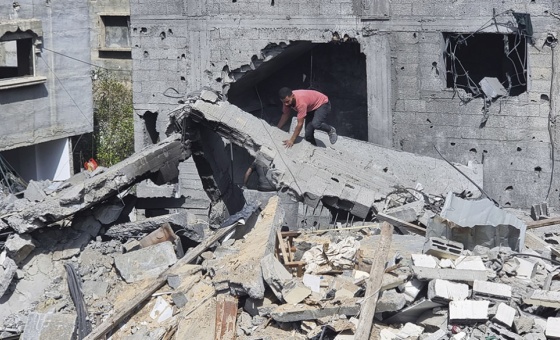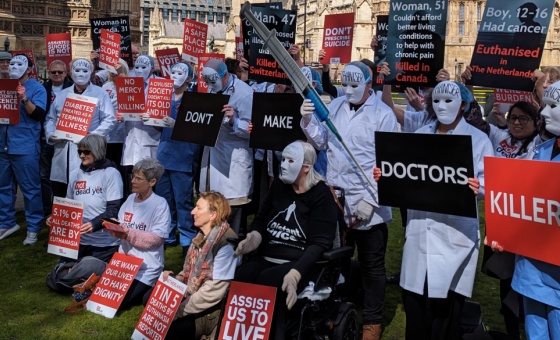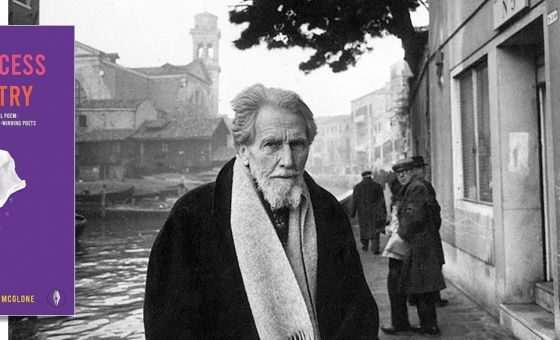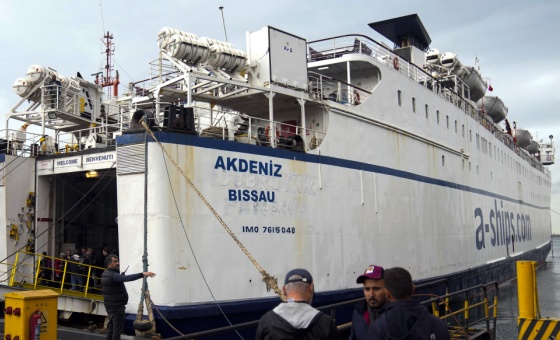This is the last article you can read this month
You can read more article this month
You can read more articles this month
Sorry your limit is up for this month
Reset on:
Please help support the Morning Star by subscribing here
WHEN miner Tom Jones of north Wales told his family, one morning in 1937, that he was off to Colwyn Bay for the weekend, they had no idea of his real mission.
Jones did not head for the sleepy holiday resort some 50 miles away from his home village of Rhosllanerchrugog. He made the risky, and highly illegal, journey to Spain, as a member of the International Brigades determined to take on the fascist forces of General Franco.
He is one of three volunteers for liberty featured on a striking new banner unveiled in London recently, as part of the annual commemoration held by the International Brigade Memorial Trust (IBMT).
Alongside him is Harry Dobson from the Rhondda village of Blaenclydach, also a miner. He was to fight and die in the battle of the Ebro in the summer of 1938.
Thora Silverthorne is the third depicted, resplendent in her nursing uniform. A miner’s daughter, born in Abertillery, Monmouthshire, she spent two gruelling years as a front-line nurse in Spain.
When Franco’s forces rose against Spain’s elected Popular Front government on July 17 and 18 1936, many in the Welsh coalfields knew exactly what was coming. There had already been hunger marches, strikes and riots.
In 1933, with Hitler’s dark star rising in Germany, Tredegar MP Aneurin Bevan proposed anti-fascist “workers’ freedom groups.”
A pivotal point came in October 1934, when striking miners in Spain’s Asturias region were viciously attacked by troops — commanded by Franco.
Miners and their leaders in Wales discussed the rebellion, in which an estimated 2,000 were killed, including 1,500 miners. For colliers young and old, this was a harbinger of something much worse.
Jones, born in 1908, fought at the bloody battle of Jarama in February 1937, and at the Ebro, where he was injured, captured and sentenced to death.
That sentence was commuted to 30 years in Franco’s brutal prisons at Zaragoza and Burgos, though he was released in 1940, the last remaining Welshman to leave Spain.
His family had long believed him to be dead, having received a death certificate from Spain.
After the war he became active in the Transport & General Workers’ Union, the forerunner to Unite, becoming secretary for North Wales Region in 1953, and then for the whole of Wales, until his retirement in 1973. He was also a founder of the Wales TUC.
He died in 1990, in Wrexham, where an annual festival honouring him was started in 2019.
After his heroism as an international brigader, he was forever known as Twm Sbaen (Tom of Spain).
Dobson, born in 1907, was a union activist, member of the Communist Party of Great Britain (CPGB), and a leading figure in the Unemployed Workers’ Movement.
He had also already fought fascism. In the summer of 1936, Oswald Mosley’s British Union of Fascists were determined to sow dissent among the desperate unemployed of the south Wales Valleys, with rallies and meetings.
Some 2,000 locals assembled in a Tonypandy field, when 15 blackshirts arrived in an armoured car, with police protection.
In the ensuing riot, 36 were arrested, including Dobson. At their trial, they lined up outside the court so that the Daily Worker could photograph them — giving anti-fascist clenched fist salutes.
Dobson was given six months’ hard labour. His first words on his release: “How do I get to Spain?”
Silverthorne was born in 1910 and joined the Young Communist League at age 16.
Before long, she was chairing meetings with prominent speakers including miners’ leader Arthur Horner.
Qualifying as a nurse in 1934, and volunteering to go to Spain with the first contingent in 1936, she worked as matron in the Granen hospital.
During the Huesca offensive, she and her team worked for 20 hours a day and treated 700 patients in five days.
She went on to found a trade union, the National Association of Nurses, regarded by the reactionary Royal College of Nursing (RCN) as far too left-wing!
It later became part of the National Union of Public Employees, now Unison. Silverthorne was its first general secretary.
A life-long communist, she was also assistant secretary of the Socialist Medical Association, playing a key role in advising the 1945 Attlee Labour government on setting up the NHS.
She died in 1999. At her funeral, the congregation sung Welsh hymns along with the Valley of Jarama, and the Internationale.
The new banner, with funding from two unions in Wales, has been made by Ed Hall, renowned for the hundreds of glorious banners he’s made for trade unions and others.
IBMT Wales secretary David McKnight said: “It is fitting that Unison Cymru/Wales and Unite Wales have sponsored our new banner and we are grateful for their support.
“The brave Welsh volunteers continue to inspire a new generation of trade unionists in the fight against fascism and the struggle for democracy.”
IBMT chair Jim Jump added: “Of the 185 Welsh volunteers who served in the International Brigades, 35 were killed in Spain. Our banner is a memorial to all of them and hopefully will be seen and appreciated at commemorative and labour movement events in Wales and beyond for many years to come.”

